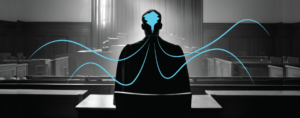 Artificial intelligence is steadily integrating into the legal sector, offering potential efficiencies in areas such as document review, legal research, and predictive analytics for case outcomes. However, the deployment of AI in law frequently encounters skepticism, often highlighted by anecdotes of its errors — misinterpretations of legal clauses, citation of non-existent precedents, or flawed legal suggestions. These incidents are scrutinized and sometimes used to argue against AI’s suitability for the complexities of the legal field.
Artificial intelligence is steadily integrating into the legal sector, offering potential efficiencies in areas such as document review, legal research, and predictive analytics for case outcomes. However, the deployment of AI in law frequently encounters skepticism, often highlighted by anecdotes of its errors — misinterpretations of legal clauses, citation of non-existent precedents, or flawed legal suggestions. These incidents are scrutinized and sometimes used to argue against AI’s suitability for the complexities of the legal field.
Such criticisms possess a degree of validity. AI systems can and do make errors, occasionally significant ones. As with any emerging technology applied to intricate domains like law, imperfections are expected. However, the disproportionate focus on AI’s fallibility often obscures that human error is pervasive within the legal profession and almost any profession. There exists a tendency to view human error with more leniency than machine error. A mistake by a legal professional might be attributed to situational factors like workload, whereas an AI error is often perceived as indicative of a fundamental technological deficiency.
While AI errors require serious consideration, a balanced perspective is necessary. Rather than imposing a standard of perfection on AI – a standard unmet by human practitioners – the pertinent question is: Can the appropriate application of AI contribute to reducing the overall incidence of error within the legal system? Potential advantages include:
- Consistency: AI can apply defined rules and parameters uniformly across large datasets.
- Efficiency: AI can perform tasks like document review and legal research with speed that surpasses human capability, mitigating errors linked to fatigue or time constraints.
- Analytical Capabilities: AI can identify complex patterns and correlations in extensive datasets that might not be apparent through manual human analysis.
 Further, concerns regarding data privacy and confidentiality require careful contextualization. It’s crucial to recognize that significant privacy risks already exist within legal practice due to both technology and human factors. The legal profession heavily relies on digital technologies — cloud storage, email platforms (like Gmail), document processing software, real estate closing platforms, practice management platforms — each carrying security and privacy vulnerabilities. Human actions, whether intentional (e.g., unauthorized disclosure) or unintentional (e.g., mishandling documents, insecure communication practices), represent a significant vector for privacy compromises.
Further, concerns regarding data privacy and confidentiality require careful contextualization. It’s crucial to recognize that significant privacy risks already exist within legal practice due to both technology and human factors. The legal profession heavily relies on digital technologies — cloud storage, email platforms (like Gmail), document processing software, real estate closing platforms, practice management platforms — each carrying security and privacy vulnerabilities. Human actions, whether intentional (e.g., unauthorized disclosure) or unintentional (e.g., mishandling documents, insecure communication practices), represent a significant vector for privacy compromises.
Therefore, utilizing AI adds another dimension to existing challenges, rather than introducing an entirely novel category of risk. The focus must be on implementing comprehensive data governance frameworks encompassing robust security measures, stringent access controls, clear ethical guidelines, and proper training for all systems and personnel involved, rather than singling out AI as uniquely precarious.
Ultimately, viewing AI solely through the lens of its current imperfections or potential pitfalls is shortsighted. The trajectory is clear: artificial intelligence is not a speculative bubble destined to burst, but rather a foundational technology that will progressively reshape the future of legal practice and the administration of justice.